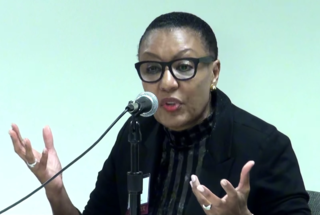A Quote by Rosalyn Sussman Yalow
The failure of women to have reached positions of leadership has been due in large part to social and professional discrimination. In the past, few women have tried, and even fewer have succeeded.
Related Quotes
I had very supportive parents that made the way for me, even at a time when there were very few women - no women, really; maybe two or three women - and very few, fewer than that, African-American women heading in this direction, so there were very few people to look up to. You just had to have faith.
Women had always been thought of as looking after the family when men go and earn an income and they're the bread earner and so on. So there is a kind of generation of inequality, [and], on top of the fact, women have pregnancies and periods, [and] when the children are very small, there are greater demands on their time. So one way or another women have had a pretty rough deal in the past, and there's no reason why that should continue, and any country that has tried to remedy that has succeeded in doing so.
Women do not enter a profession in significant numbers until it is physically safe. So until we care enough about men's safety to turn the death professions into safe professions, we in effect discriminate against women. But when we overprotect women and only women it also leads to discrimination against women. ...If [an employer works] for a large company for which quotas prevent discrimination, they find themselves increasingly hiring free-lancers rather than taking on a woman and therefore a possible sexual harassment lawsuit.
I conceived of myself in large part as a teacher. There wasn't a great understanding of gender discrimination. People knew that race discrimination was an odious thing, but there were many who thought that all the gender-based differentials in the law operated benignly in women's favor. So my objective was to take the Court step by step to the realization, in Justice Brennan's words, that the pedestal on which some thought women were standing all too often turned out to be a cage.
What business needs now is exactly what women are able to provide, and at the very time when women are surging into the work force. But perhaps even more important than work force numbers is the fact that women - who began this sweeping entry in the mid-seventies - are just now beginning to assume positions of leadership, which give them the scope to create and reinforce the trends toward change. The confluence is fortunate, an alignment that gives women unique opportunities to assist in the continuing transformation of the workplace.

































